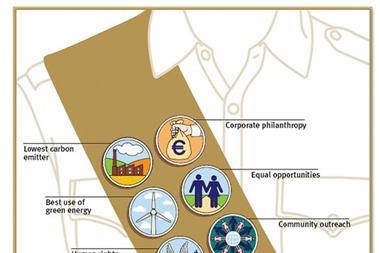A survey by Ernst and Young shows that many organisations have never completed a fraud risk assessment
Increased enforcement of bribery and corruption is a top concern in many major markets and yet alarmingly the vast majority of organisations have never completed a fraud risk assessment, according to a new survey.
The findings emerged in Ernst and Young’s 11th annual Global Fraud Survey, which sheds light on how businesses have coped with increasing fraud and corruption risk during the financial crisis.
How prepared is your firm? Give us your feedback in StrategicRISK's rapid fire survey
The passage of the UK’s Bribery Act is the latest example of a more robust approach to punishing the unethical conduct of individuals and corporates. Individual executives and directors are not immune from prosecution under the new law.
In light of this, 76% of the UK respondents say their directors are concerned about personal liability for actions carried out by their company. Despite this concern, organisations are not behaving in a way that would increase their own protection.
Eighteen percent of UK companies have not performed a fraud risk assessment over the last 12 months, and 1 in 10 (8%) have never completed one, according to this survey.
“Performing such an assessment will help prioritise actions to deal with the most significant fraud risks and is therefore fundamental when budgets and resources are scarce,” commented John Smart, a partner in E&Y’s Fraud Investigation and Dispute unit.
He continued: “Having coped through the downturn, many companies are now looking for new growth opportunities, which may come through entering new markets or making acquisitions. These efforts can expose companies to numerous new risks, potentially including corruption issues. To minimise such risks, businesses should undertake thorough, focused pre-acquisition due diligence.”
According to the survey, however, 34% of UK respondents rarely or never perform fraud or corruption related pre-acquisition due diligence, while 47% rarely or never perform a similarly focused post-acquisition review.
“These steps are vital to reducing the risk of successor liability and subsequent regulatory enforcement actions,” noted Smart.
“When growth returns, we expect more challenges, more potential for fraud, more exposure to corruption and more interest from regulators. In the coming months, if they haven't done so already, companies will need to review or improve their procedures to achieve long-term sustainable and ethical growth,” he said.



















